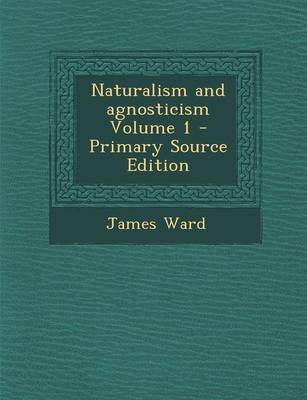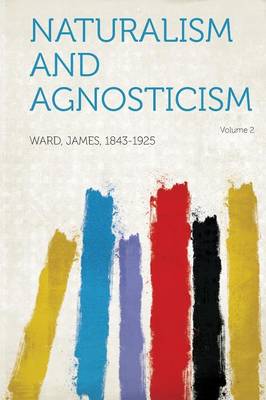Naturalism and Agnosticism 2 Volume Paperback Set
2 primary works
Volume 1
James Ward (1843-1925) was Professor of Mental Philosophy and Logic at the University of Cambridge. First published in 1899, this two-volume work consists of his Gifford Lectures, delivered between 1896 and 1898, in which he criticises Naturalism (the belief that all phenomena are governed by the laws of science, and that the supernatural cannot exist), and Agnosticism (the belief that the existence of spiritual phenomena cannot be proved or disproved), in favour of Idealism, in which spiritual and non-material phenomena are central to human experience. The lectures in Volume 1 set Naturalism and Agnosticism within the context of the Mechanical Theory, arguing against its claim that experience can be fully described in terms of mechanical concepts such as motion, energy and force. Exploring the ideas of prominent thinkers such as Newton, Huxley and Spencer, these thought-provoking discussions continue to inform and evoke debate among philosophers and natural scientists.
Volume 2
James Ward (1843-1925) was Professor of Mental Philosophy and Logic at the University of Cambridge. First published in 1899, this two-volume work consists of his Gifford Lectures, delivered between 1896 and 1898, in which he criticises Naturalism (the belief that all phenomena are governed by the laws of science, and that the supernatural cannot exist), and Agnosticism (the belief that the existence of spiritual phenomena cannot be proved or disproved), in favour of Idealism, in which spiritual and non-material phenomena are central to human experience. The lectures in Volume 2 oppose dualist defences of the Mechanical Theory, which claim that the mind is distinct from physical objects. Ward ultimately argues for a monistic Idealist view, in which consciousness and the physical world are inseparable. He also claims that because Naturalism is so easily refuted, it actually promotes Idealism, in an argument that continues to evoke philosophical debate.

